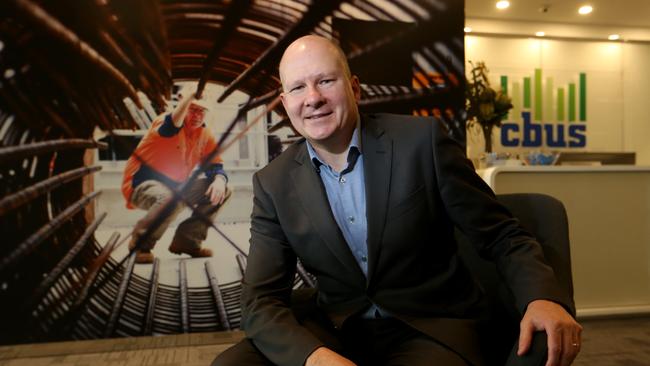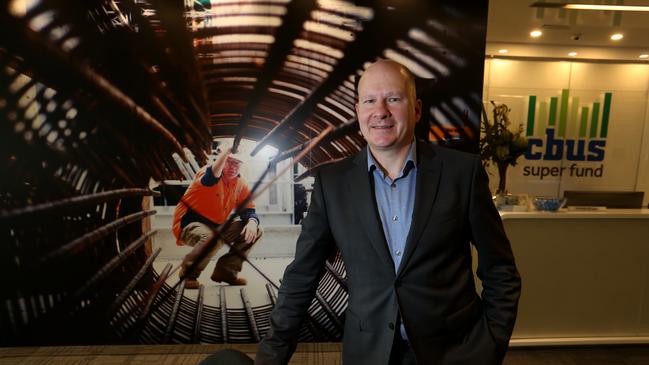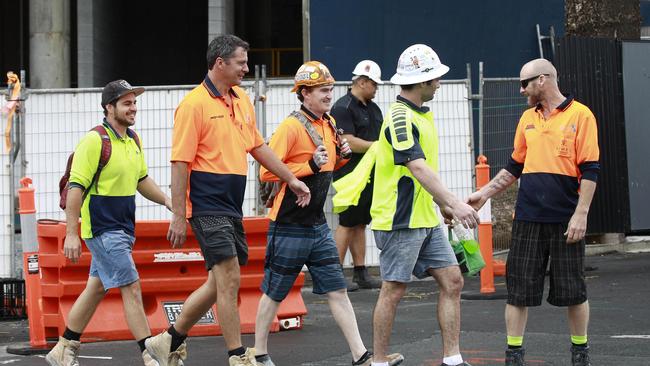The great super rip-off: how much Gold Coast workers are under paid their work entitlements
Shock figures reveal thousands of Gold Coast workers have been robbed of super savings totalling $135 million, with workers in certain industries worst affected.

Gold Coast
Don't miss out on the headlines from Gold Coast. Followed categories will be added to My News.
AT least 70,000 workers on the Gold Coast are not being paid their superannuation entitlements as bosses rob them of more than $135 million, a conference has been told.
While wages are paid fortnightly or monthly, employers only need to contribute super quarterly, making it hard for members or funds to keep track of non-payment.
On the Coast for the Conference of Major Superannuation funds, Cbus CEO David Atkin called for new laws requiring super to be paid at the same time as wages.

MORE NEWS
Shocking claims against RFG bosses
New home lined up for NightQuarter
Cops seize $15,000 worth of cocaine
“Unpaid super is a growing problem with workers missing out on over $1 billion a year in Queensland alone according to the latest analysis of Australian Tax Office figures,” Mr Atkin told the Bulletin.
“In 2015-16, on the Gold Coast alone, more than 70,000 people missed out on over $135 million that is rightfully theirs.
“That’s money that should be in their super accounts and earning returns to help them in retirement.”
About 45 per cent of machinery operators, drivers and labourers were the worst impacted by the super shortfalls, according to an Industry Super Australia report.
Workers under the age of 30 were a third more likely to not be paid super compared to full-time workers on higher salaries.
In terms of under payment in the regions, the Coast only rates behind Brisbane for the worst case scenario for workers.
The average underpayment on the Coast is $1910, only behind Brisbane on $1974 for a 12-month period.

SUBSCRIBE TO THE GOLD COAST BULLETIN - JUST $1 FOR THE FIRST 28 DAYS
Mr Atkin said paying wages with super, rather than quarterly, would give workers certainty that they were being paid correctly.
“Super is deferred wages for retirement, it should be paid at the same time as wages,” Mr Atkin said.
“Often people don’t work out that they have an issue with unpaid super, if they notice it at all.
“Cbus invests heavily in chasing up unpaid super and we reclaimed over $90 million for members in the last financial year, which is sadly the tip of the iceberg.”
Mr Atkin said the unpaid super problem would have a big impact on construction-heavy regions like the Coast.
“Research and statistics on non-payment of super shows that it is a significant issue in the construction industry, and this impacts both workers and employers,” he said.
“Looking at some of the liquidators reports there are clear examples where super has been used as cashflow for failing companies.
“This sort of behaviour is not only hurting people’s retirements, it’s creating an uneven playing field for employers who do the right thing by their workers.”
New laws introduced to Parliament have improved the reporting of super but employers are still under no obligation to pay the contributions at the time they are disclosed in payslips.


